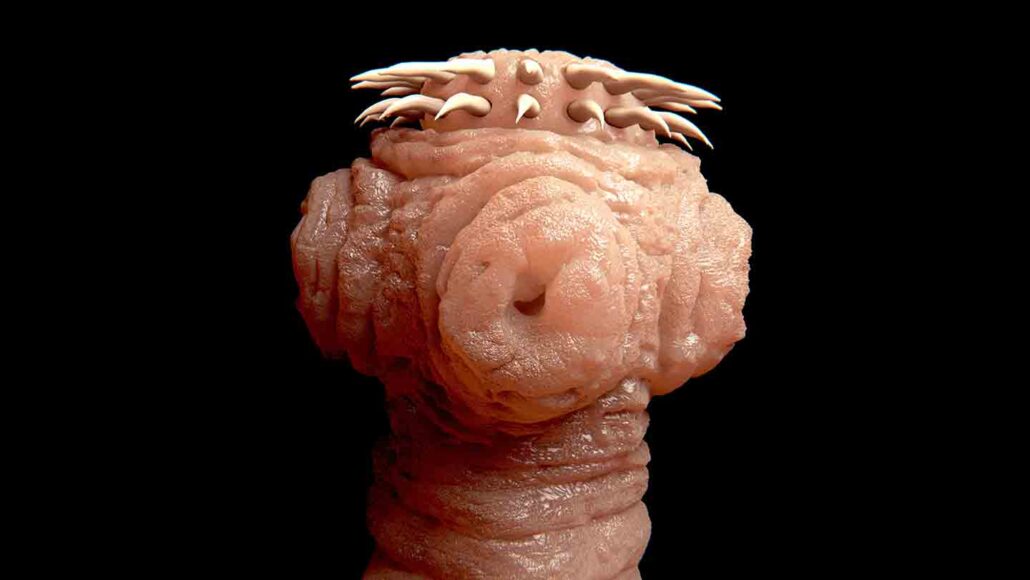Questions for “How wriggling, blood-eating parasitic worms alter the body”

Terrifying much? This tapeworm and many kinds of parasitic worms have spikes and suckers on their heads. They use these to attach themselves to the inside of their host’s gut.
selvanegra/iStock/Getty Images Plus